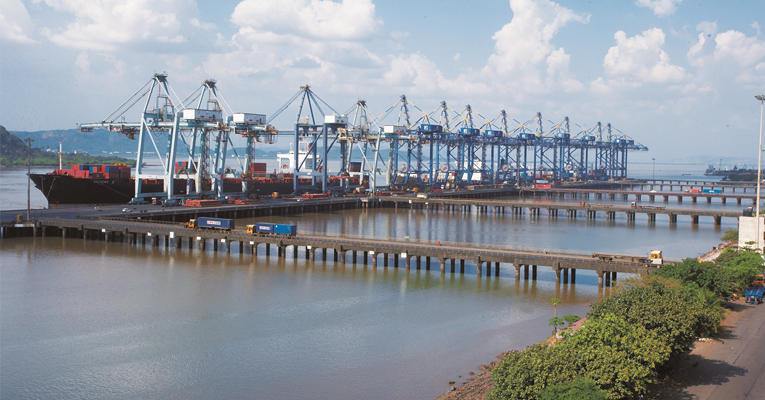Sustainability practices to maintain business and marine ecology at JNPT

The Jawaharlal Nehru Port's project planning is based on Environmental Impact Assessment (EIA) studies done in the 1980s. Since inception, the port has initiated steps to maintain ecological stability in the area by meticulously doing business with respect to the Coastal Zone Management Plan, which is complete in all respect and also meets the goals of Integrated Coastal Zone Management (ICZM), viz., maintaining functional integrity of coastal resource systems; reducing resource-use conflicts; maintaining health of environment; and facilitating progress of multi-sectorial development.
JN Port has adopted most of the industrial procedures through ISO certification of Integrated Management System of which ISO 14001 is a vital part. JNPT's vision "To become the premier container port of South Asia" is in turn based on a five points mission of which "Pursuing the principles of ecofriendly sustainable development" is the driving force behind the port's development, augmentation as well as its operations.
The port employs best available technologies to avoid/ reduce any impact on marine ecology. It has an Environmental Management and Monitoring Plan (EMMP) to take care of cargo handling at berths; stacking and handling of cargo at yards and tank farms; evacuation of cargo; and developmental activities including dredging.
All operations are regularly monitored and adequate preventive and corrective measures are taken to address any non- conformity. Augmentation of cargo handling facilities are taken up in line with the environmental clearances received from the government. The port has taken up initiatives in carrying out studies related to invasion of species due to ballast water release and time series assessment of marine ecosystem of the JN Port.
The port's in-house studies and marine ecology monitoring finds no adverse environmental impact from the port's operations and developments. However, increase in levels of some ecological parameters like algal growth and particulate organic carbon in the port area have been noticed. Various studies carried out in Mumbai harbour indicates poor water quality, mainly because of the discharges of untreated effluent and industrial waste from mega cities like Mumbai, Thane, Panvel etc. The effects observed on some of the port's ecological parameters are mainly because of the said untreated discharges. The port has little or no control over these factors except requesting the concerned authorities to address the issues.
JN port preserves hundreds of hectares of mangrove forest which facilitates breeding grounds for fish and other species thus helping in nurturing the marine fauna. The port attempts to sustain the marine ecology's unaffected co-existence with its business by adopting adequate measures, some of which are enunciated below:
- Provision of reception, collection and disposing facilities for solid waste generated at berthed ships.
- Reception and disposal facilities through approved vendors for hazardous waste of ships.
- Oil and water separators provided to avoid oil entry in sea waters.
- Bunds are provided to arrest leaks from containers carrying hazardous goods.
- No untreated discharge in to the sea / creek from the port area.
- All terminals are equipped with oil spill response equipment.
- Adequate environmental measures are taken during construction and dredging activities.
- A functional Oil Spill Response Tier -1 facility to respond oil spill and training to concerned staff (as per NOSDCP guidelines).
- Planning of Eco park in 300 hectors to preserve mangrove treasure.
- The port has set up a target to be fully compliant to all MARPOL requirements by end of this year.
These measures along with various other efforts are helping JN Port to navigate through an "Eco Channel" to achieve the status of a "GreenPort."



